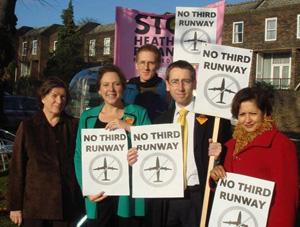As the expansion is given the green light by the DfT I cannot but amaze myself at the colourful coalition of people opposing it: John McDonnell, Boris Johnson, Emma Thompson, Zac Goldsmith…. So I thought that Forgesian Thinking should also add its two pence to the debate. So here we go…
I am supportive on the expansion on three accounts:
– If London is to continue to be a true global ‘meeting point’, Heathrow needs to remain one of the top three world airports. It is essential. If you fly into Amsterdam you are not going to then take a train to London, you’ll do your business there, plus they already speak very good English.
– Building a completely new airport somewhere else, another BBI (Brilliant Boris’ idea), would be very costly, you don’t need just the runway but also a terminal plus other servicing builidings and infrastructure. It also involves creating noise pollution in a completely different new area (I know this point is no consolation to Heathrow residents though).
– From a logistics point of view, it is more efficient to have on hub rather than several of them dispersed, plus less road pollution will be created. This is also true for passengers travelling from and to the airport.
The real issue about climate change is not about stopping Heathrow’s expansion. Heathrow’s flights are generally long distance flights, meaning you either fly or you simply can’t get to your destination. If climate change campaigners would like to make a real difference they should be focusing all their efforts on low-fare airlines and airports. Encouraging high-speed rail so short flights to Europe can be replaced by train journeys.
Heathrow is not an environmental issue but a local residents’ one. That is a fair fight. The spat today between Geoff Hoon and Emma Thompson best illustrates the not very convincing climate change argument.
As Hoon accused her of opposing the expansion while flying around the world as an actress, Thompson replied:
“Get a grip Geoff. This is not a campaign against flying – we’re trying to stop the expansion of Heathrow in the face of climate change.
“It sounds like the transport secretary has completely missed the point. Again.”
I don’t even know what that means. Flying produces climate change, one stops flying, climate change is reduced, as simple as that. That is the problem with the climate change-base anti-expansion campaign, it’s trying to achieve the squaring of the circle. And Cameron’s Tory leadership is once more at its populist best encouraging the nonsense.
Read Full Post »




